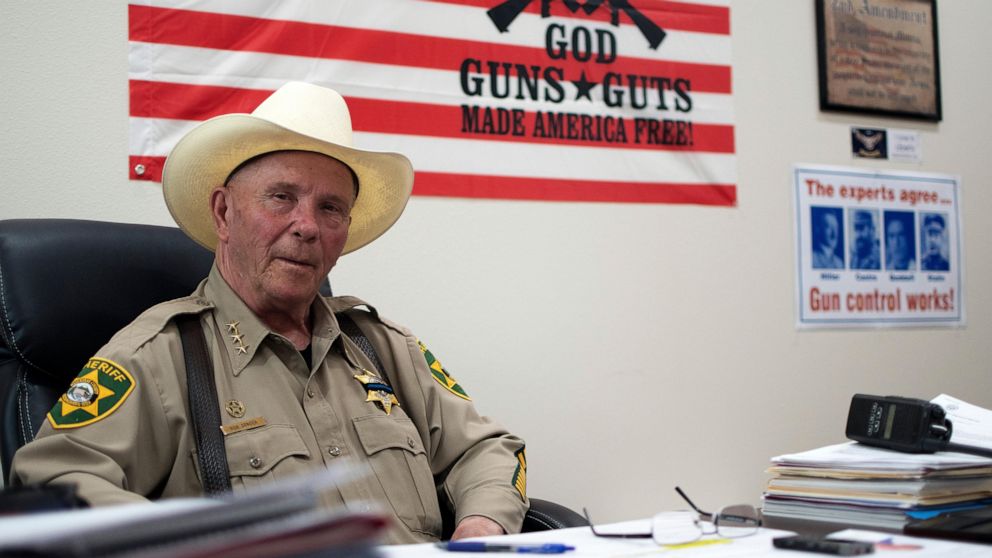Title: The Growing Acceptance of a Right-Wing Sheriffs Group that Challenges Federal Law
Introduction:
In recent years, a right-wing sheriffs group known as the Constitutional Sheriffs and Peace Officers Association (CSPOA) has gained significant traction and acceptance across the United States. This organization, founded in 2011, promotes the idea that county sheriffs have the ultimate authority to interpret and enforce laws within their jurisdictions, even if it means challenging federal law. While the CSPOA’s growing acceptance has sparked both support and controversy, it is essential to examine the reasons behind its rise and the potential implications for our legal system.
1. The Origins of the CSPOA:
The CSPOA was established by former Arizona sheriff Richard Mack, who gained national attention after successfully challenging certain provisions of the Brady Handgun Violence Prevention Act in the Supreme Court. Mack argued that the federal government had overstepped its constitutional authority by mandating local law enforcement to enforce federal gun control measures. This victory propelled Mack to create the CSPOA, aiming to rally sheriffs across the country to resist what they perceive as unconstitutional federal laws.
2. The CSPOA’s Ideology:
The CSPOA promotes a strict interpretation of the Constitution, emphasizing states’ rights and limited federal authority. They argue that county sheriffs are the ultimate protectors of citizens’ constitutional rights and have the power to nullify or refuse to enforce federal laws they deem unconstitutional. This ideology resonates with many conservatives who feel that the federal government has become too intrusive and overreaching.
3. Support for the CSPOA:
The CSPOA has gained support from various conservative groups, politicians, and individuals who share their beliefs in limited government and individual liberties. Supporters argue that the CSPOA acts as a necessary check on federal power, ensuring that local communities can govern themselves according to their own values and priorities. They see the group as a means to protect their Second Amendment rights, property rights, and personal freedoms.
4. Controversies Surrounding the CSPOA:
Critics of the CSPOA argue that the organization promotes a dangerous form of “county supremacy” that undermines the rule of law and the United States’ federal system. They argue that sheriffs should not have the authority to selectively enforce or nullify federal laws based on their personal beliefs. Critics also express concerns about potential abuses of power, as sheriffs could potentially refuse to enforce laws protecting civil rights or public safety.
5. Legal Implications:
The growing acceptance of the CSPOA raises significant legal questions. While sheriffs hold considerable power within their jurisdictions, federal law ultimately supersedes local authority. The Constitution grants Congress the power to make laws that apply uniformly across the nation. However, the CSPOA’s influence could lead to legal battles and challenges to federal laws in various states, potentially creating a patchwork of conflicting interpretations and enforcement.
Conclusion:
The Constitutional Sheriffs and Peace Officers Association (CSPOA) has gained increasing acceptance among conservatives who believe in limited government and states’ rights. While the organization’s ideology resonates with many, it also faces criticism for potentially undermining the rule of law and creating conflicts between federal and local authorities. As the CSPOA continues to grow in influence, it is crucial to carefully consider the potential consequences for our legal system and the balance between federal and local authority.



